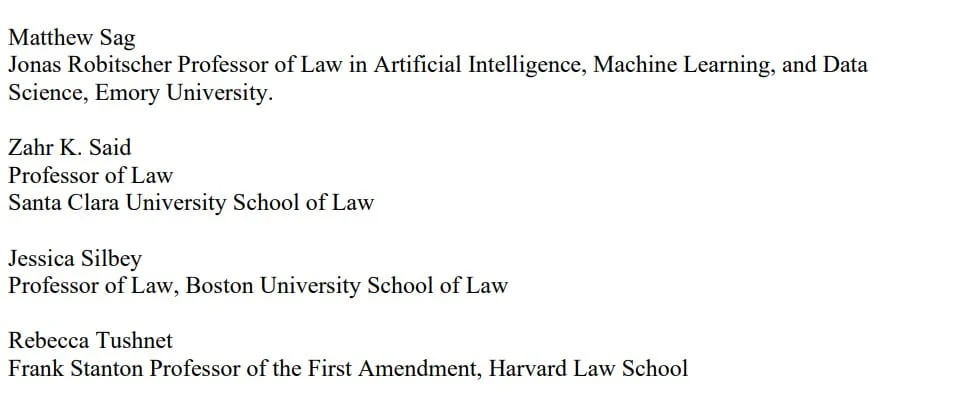
AI Training on ‘Pirated’ Content Could Become Acceptable Based on ‘Transformative Use’
- Intellectual property law professors advocate for considering fair use when pirated content helps create valuable tools.
- The professors’ argument focuses heavily on the “transformative use” doctrine, which could help Meta’s ongoing trial.
- The concept grants fair use protection if the using copyrighted material adds value through a different purpose or function.
A group of intellectual property law professors from renowned institutions such as Harvard and Boston University argue that the concept of fair use permits internal copying of works if the final result is “transformative.”
Their “friend of the court” or amicus brief says overly restricting the use of copyrighted material risks stifling emerging technologies like AI.
The professors advocate for a broader interpretation of fair use doctrine to support the creation of valuable tools and innovations. They argue that focusing on the source of the training material, rather than its application, would jeopardize progress in AI development.
Meta’s alleged use of millions of copyrighted books, obtained from platforms like Z-Library and Anna’s Archive, as training data for its AI systems has drawn sharp criticism and legal action.
Not only is the downloading of pirated digital content under scrutiny but there are also claims that Meta distributed these materials via BitTorrent during the process. Authors have objected strongly, asserting that the unethical acquisition of copyrighted works cannot be justified under the fair use doctrine.
If the court finds these actions to be deliberate and unrelated to the training process, it could weaken Meta’s defense significantly.
By training AI systems, the professors contend that Meta converted copyrighted material into a new, non-expressive use, establishing a precedent for fair use protection. They emphasize that the purpose of using the works has shifted—from entertainment or consumption to developing advanced machine-learning tools.
The professors’ reasoning aligns with prior rulings, including the landmark Perfect 10 v. Amazon case, where the Ninth Circuit Court ruled that repurposing images from unauthorized sources to create thumbnails for a search engine was deemed transformative and, therefore, protected under fair use.
The professors argue that Meta’s AI training application qualifies as a fundamentally distinct use of the materials, thereby complying with the conditions of fair use.
Importantly, the professors draw a line between Meta’s alleged internal data usage, where human users do not directly experience the copied material, and infringement cases centered around personal consumption or redistributive piracy.
Other jurisdictions, such as Japan, have crafted legal exceptions that explicitly allow the use of copyrighted material for AI development without the need for prior authorization. The U.S. has yet to create similar allowances, leaving courts to interpret the applicability of fair use doctrine in this complex scenario.










